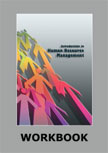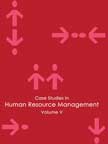SRC Holdings - The 'Open Book' Management Culture
|
|
ICMR HOME | Case Studies Collection
Case Details:
Case Code : HROB039
Case Length : 13 Pages
Period : 1974 - 2003
Pub Date : 2003
Teaching Note :Not Available
Organization : SRC Holdings
Industry : Manufacturing
Countries : USA
To download SRC Holdings - The 'Open Book' Management Culture case study
(Case Code: HROB039) click on the button below, and select the case from the list of available cases:

Price:
For delivery in electronic format: Rs. 400;
For delivery through courier (within India): Rs. 400 + Shipping & Handling Charges extra
» Human Resource and Organization Behavior Case Studies
» HRM Short Case Studies
» View Detailed Pricing Info
» How To Order This Case
» Business Case Studies
» Area Specific Case Studies
» Industry Wise Case Studies
» Company Wise Case Studies

Please note:
This case study was compiled from published sources, and is intended to be used as a basis for class discussion. It is not intended to illustrate either effective or ineffective handling of a management situation. Nor is it a primary information source.
Chat with us

Please leave your feedback

|
|




<< Previous
The Power of Employee Involvement Contd...
|
Analysts attributed the strong performance of SRC Holdings to its organization
culture, which was based on the 'Great Game of Business' (GGOB) system founded
by its President and CEO, John P. Stack (Stack). SRC was regarded as one of the
pioneers of the 'Open Book Management' (OBM) philosophy, which was formulated in
the mid-1980s.
Both GGOB and OBM are based on the principles of throwing the financial books
open to employees, treating them as business partners and thus making them
accountable for the company's performance (Refer Exhibit I for a brief note on
OBM).
|

|
Background Note
SRC Holdings, originally called Springfield Remanufacturing Corporation, was
formed in 1974, when Internation Harvester (Harvester3), established it as a
diesel engines and engine components remanufacturing unit for its trucks,
agricultural and construction equipment dealers.
|
|
SRC was a problem child for Harvester from its very inception and by
the late 1970s, the division was saddled with a $2 million loss and
a host of employee-related problems. At this point, Stack, a
Superintendent at one of Harvester's machining division plants, was
made SRC's plant manager and was given six months to determine
whether the division should be saved or scrapped.
Stack observed that the division was facing a severe dearth of
tools, as a result of which, production was hampered. |
He realized that the employee unrest was also because of the
same problem - though they wanted to work, they could not do so because the
tools were not available. Stack convinced Harvester to supply the required tools
as early as possible and thus managed to get the production line on track.
To motivate the employees and to improve their productivity, Stack decided to
apply the same technique he had used at the machining division in his earlier
posting.
This technique involved stimulating the competitive nature among
employees by making their jobs seem like a game and encouraging them to win the
game.
Commenting on this, Stack said, "I had no master plan. My
feelings were more basic. I just felt that, if you were going to spend a
majority of your time doing a job, why couldn't you have fun at it? For me, fun
was action, excitement, a good game. If there is one thing common to everybody,
it is that we love to play a good game."4
Stack's system was based on the simple premise that 'everyone loves being a winner.' The system with goals, scorekeeping, and rewards, was designed to show employees what it takes to win...
Excerpts >>
|
|









